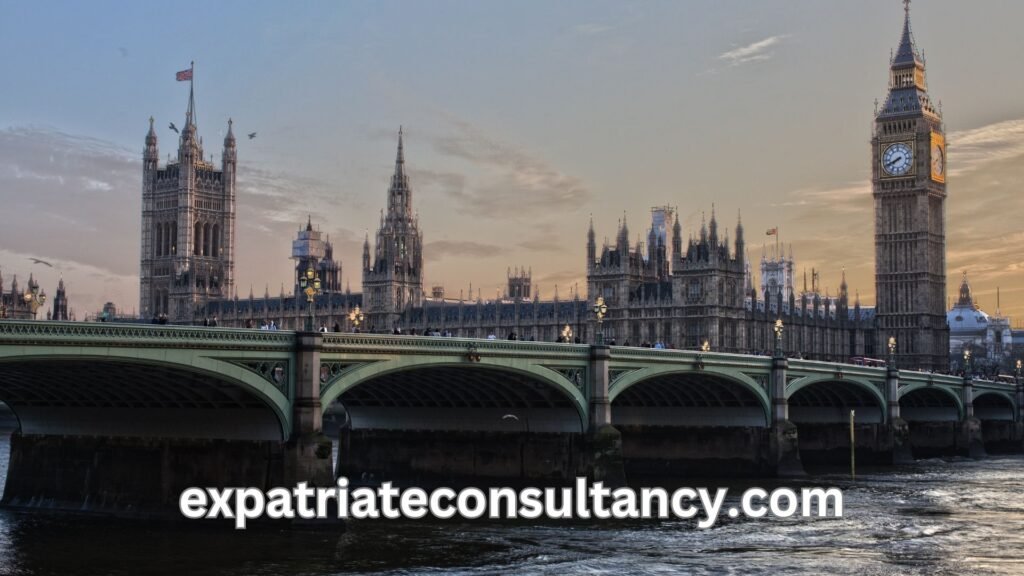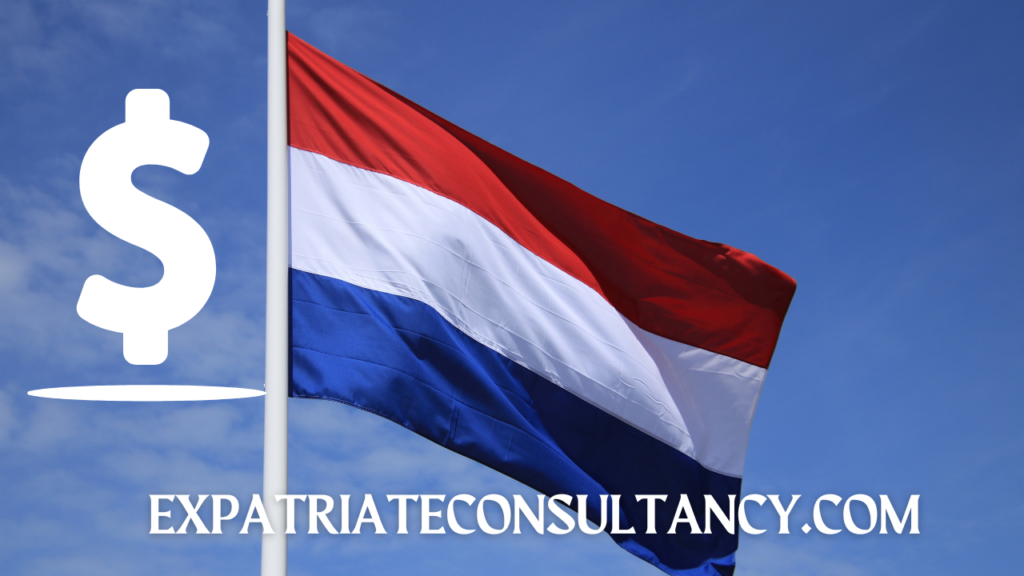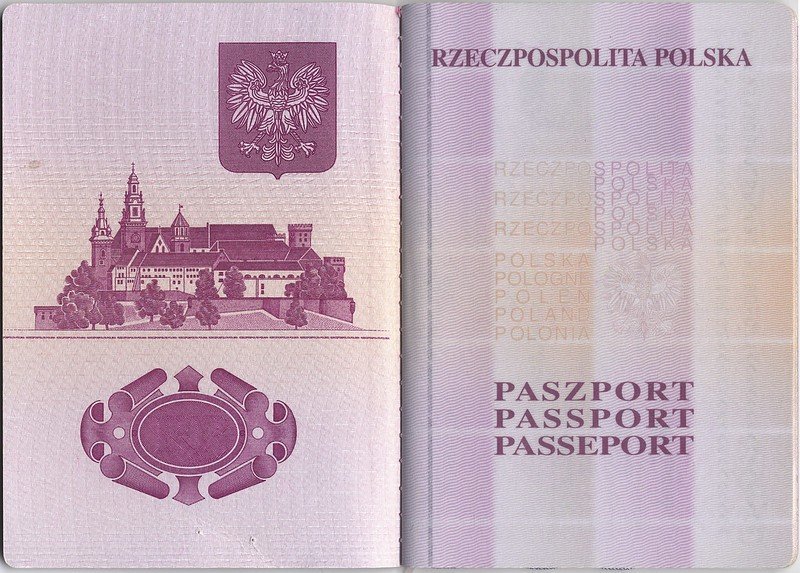The Best European Country to Start a Business According to Your Profile
This is a quick guide for anyone thinking about starting a business in Europe as a foreigner, written by a person who has done it before.
I asked myself the following question a few years ago:
How to open a company in Europe?
Together with this doubt, came many others, like what are the best European countries to start a business? or what are the obstacles to starting a business in Europe as a foreigner? Researching the various options can be overwhelming, especially when considering factors like taxation, startup costs, and market accessibility. It’s also crucial to understand the differences in regulations and support systems, which can vary significantly between countries. A thorough european countries and us states comparison can help clarify these aspects and guide aspiring entrepreneurs in making informed decisions.
Starting a Business in Europe as a Foreigner – My Own Experience Running a Business in the EU
I only discovered the answers to many of these questions after making mistakes. You will learn about them in this article, so you avoid the same problems I had.
The information below is either from my own experience or collected from reliable sources in 2021. However, this article is not legal or investment advice.
If you are planning to venture overseas, there is a great list of books about moving abroad that I recommend. Remember to check the risks to consider in a business plan. There are also books specific for entrepreneurs overseas. We also have an article answering about the best age to start your own business.
The order of the countries below does not obey any criteria, except the first, which is the place where I started my initial business. Each of these countries offers unique opportunities and experiences that have influenced my journey as an entrepreneur. Additionally, they are often considered among the best destinations for US citizens looking for adventure, culture, or new business ventures. Exploring these locations has not only enriched my personal life but also expanded my professional horizons.

Starting a business in Poland as a foreigner

Poland is not the first country that comes to mind for most people when they plan to open a company in Europe.
The Polish economy experienced nearly 3 decades of uninterrupted growth (the sequence finished in 2020, with the Coronavirus crisis). That made the country soar from one of the poorest in Europe in the 90s to one of the most promising new-joiners in the European Union. The Polish capital, Warsaw, has an average income comparable to Berlim.
Ranking at the Ease of Doing Business Index: 40th
Minimum Investment: There is not a specified minimum investment, but since the visa approval is highly subjective, it is recommended that the entrepreneur has at least 100 000 zlotys (nearly 22 000 euros) in the bank account, or creates two full-time jobs for locals. If both, even better.
Other specifications for starting a business in Poland as a foreigner:
- To renew the visa after one year, either the company must be profitable or hire two Polish citizens as full-time employees for at least six months.
- The entrepreneur must submit a well-researched business plan to the immigration authorities. Some consultants can help with the business plan if you are willing to invest in Poland.
Pros of Opening a Business in Poland
- Easy access to the European market.
- Resilient economy
- Low minimal investments (among the lowest in the entire European Union).
- If you have Polish ancestry, your life will get much easier if you apply for a Karta Polaka.
Cons of Opening a Business in Poland
- The entire process can take more than six months.
- If you plan to invest in Warsaw, be aware that the Polish capital can be twice as expensive as other major cities in the country.
Starting a business in Ireland as a Foreigner
The Ireland SEP has the mission of facilitating the creation of startups in Irish territory. The candidates for starting a European Business and is not EU citizen can apply for a 2-year residency, with the possibility to renew for another 3. Family members can be included in the visa. Dublin is the favorite city in Ireland for entrepreneurs.
Program Name: There are currently 2 parallel programs for investor visas: One is the Immigrant Investor Programme, and the other is the Startup Entrepreneur Programme (SEP).
Ranking at the Ease of Doing Business Index:24th.
Minimum Investment: A minimum of €50,000 per founder to fulfill visa requirements for the first entrepreneur. €30,000 for each additional founder visa.
Other specifications on starting a business in Ireland as a foreigner:
- The applicant should have an innovative business idea that can create a minimum of 10 jobs in Ireland and earn at least €1 million in turnover within 3–4 years.
• The startup headquarters must be based in Ireland.
• The startup must be less than 5 years old if the applicant is already based in Ireland.
Pros of Opening a Business in Ireland
- Brexit is bringing more business opportunities to Ireland.
Business-friendly tax system. - One of the lowest corporate tax rates of entire Europe: 12.5%
Cons of Opening a Business in Ireland :
- Relatively high costs, even when compared to other European economies.
- Small internal market.
How to Open a Business in The United Kingdom

The UK Startup Visa grants successful applicants a residency of 3 years and 4 months. It can be extended for an additional 2 years.
Program Name: The UK Startup Visa (before called Tier-1 Entrepreneur visa)
Ranking at the Ease of Doing Business Index: 8th
Minimum Investment: Between £50,000 to £200,000 should be available for investment in a bank account. Plus, the participants must prove they have funds enough to pay their own expenses for at least three months.
Other Specifications for starting a business in the UK as a foreigner:
- The visas are awarded on a points-based system, and successful applicants must score a full 95/95 points.
- There should be a letter of recommendation from recognized institutions listed by the government.
- There are minimum English idiom requirements and the applicant must present a criminal record certificate.
- For certain nationalities, it is also required the negative result of a tuberculosis test.
Pros of Starting a Business in the UK as a Foreigner:
- No need to handle documents in difficult languages.
- Friendly environment to new businesses.
Cons of Starting a Business in the UK as a Foreigner:
- Strict requirements for an entrepreneur visa.
High costs compared to other European countries.
Starting a Business in Estonia

For a few years already, Estonia has had a policy of attracting startups and a buoyant environment for entrepreneurs. Most of them are under the umbrella of the Estonia Startup Visa. The effort resulted in this tiny baltic country having the highest number of startups per capita in the EU.
The Estonian government also pioneered solutions for digital nomads by creating the e-Residency. It allows businesses to be based in the country but managed by remote entrepreneurs.
Program Name: Estonia Startup Visa
Ranking at the Ease of Doing Business Index: 18th
Minimum Investment: There are no minimum investments for the business itself, but the applicant should present the resources necessary to execute a business plan for an innovative and scalable enterprise. Plus, he/she needs to have at least €130 per month intended to live in Estonia.
Other Specifications:
- The applicant should receive approval from the Startup Committee.
- The applicant should show evidence of securing accommodation for the stay and intent to leave (i.e., a departing plane ticket).
- There should be a valid insurance policy for the Estonia or Schengen area with at least €30,000 coverage.
Pros of Starting a Business in Estonia
- There are no taxes on retained or reinvested profits.
- It is very easy to open business bank accounts.
- The government facilitates entrepreneurial activity
- Nearly every procedure can be solved online.
Cons of Starting a Business in Estonia
- For brick-and-mortar businesses, the cultural differences and the language barrier can become an obstacle.
Starting a Business in Italy as a Foreigner
The Italy Startup Visa has financial tools for any business that requires research and development funding. It requires, however, that the candidates present proof of their personal(or their team) academic backgrounds.
Program Name: Italy Startup Visa
Ranking at the Ease of Doing Business Index: 58th
Minimum Investment: €50,000 per visa applicant
Other Specifications for starting a business in Italy as a foreigner:
- The candidate must submit the documents online and be approved by the Startup Visa Technical Committee.
- The company should not have more than 5 years. Another requirement is a turnover smaller than €5 million. No profits should be distributed in the history of the company.
- A minimum of 15% of the costs must be R&R. At least a third of the team must have PhDs, or two-thirds a master’s degree.
- The firm must already have intellectual property, intend to establish headquarters in Italy, and be subject to tax contributions.
Pros of Starting a Business in Italy as a Foreigner:
- Financing lines for businesses that are involved in research and development.
- Incentives for science-related firms.
Cons of Starting a Business in Italy as a Foreigner:
- Strict requirements of academic backgrounds and company history.
- Italy has a complicated bureaucracy for European standards.
How to Open a Business in France
The French government created two parallel programs intended to attract technology startups. One is the French Tech Ticket and the other is the French Tech Visa. The former was created to help tech startup founders, employees, and investors to live and work in France. It is valid for 4 years, can be renewed, and can be also extended to immediate family.
Check also our article Pros and Cons of Life in France
Program Name: French Tech Ticket, French Tech Visa
Ranking at the Ease of Doing Business Index: 32nd
Minimum Investment: For the French Tech Visa, the minimum capital invested must be equal to a French annual minimum wage, currently 18 655 Euros.
Other specifications on how to start a business in France as a foreigner
(Details valid also for the French Tech Visa)
• The candidate must be selected by one or more French Tech Visa partner incubators by the selection process.
• The candidate must present an economic innovation plan for the company in France.
• Entrepreneurs need to be approved by the Direccte
Pros of Starting a Business in France as a Foreigner
- Smaller capital requirements
- Access to incubators and accelerators
Cons of Starting a Business in France as a Foreigner :
- Not among the easiest countries in Europe to do business.
- The selection process can be competitive.
How to Open a Business in the Netherlands

The candidates approved in the Dutch startup program are sent to Startup Delta. It is a partnership between the government, incubators, investment groups, and enterprises. Entrepreneurs have access to mentorship and guidance in their ventures in the Netherlands.
Program Name: Netherlands Entrepreneur Visa
Ranking on the Ease of Doing Business Index: 42nd
Minimum Investment: The candidate must prove to have at least €13,000 to support his own expenses.
Ps: If instead of opening a business, you are thinking about retirement in the Netherlands, we wrote this article for you.
Other Specifications for starting a business in the Netherlands as a foreigner:
- The candidate needs to present an idea considered innovative by the program committee.
Pros of Opening a Business in the Netherlands
- Access to experienced entrepreneurs who will act as mentors and guides.[
- Relatively small initial investment.
Cons of starting a business in the Netherlands as a foreigner
- Competitive selection process.
How to Open a Business in Denmark
Differently from many other entrepreneur visa programs in Europe, Denmark does not target projects to build large companies with millions invested but also benefits self-employed, non-EU people who present innovative and scalable ideas. On top of that, it provides access to angel investors, accelerators, and the Danish Growth Fund.
One additional plus of Denmark is that its capital, Copenhagen, is among the safest cities in the world.
Program Name: Denmark Startup Visa
Ranking at the Ease of Doing Business Index: 4th
Minimum Investment: Between 137,076 DKK and 319,236 DKK in savings for the entrepreneur’s own expenses, plus the amount needed to execute the business plan.
Other Specifications:
- The candidate must present a comprehensive business plan, conduct a presentation, and a pitch deck. The presentation and the pitch must show that the candidate will have an active role in the business.
- The candidate must be proficient in English.
- The candidate`s idea must have the approval of a panel from the Start-up Denmark.
- The candidate must be evaluated by the Danish Agency for International Recruitment and Integration.
Pros of Opening a Business in Denmark
- One of the easiest countries in the world to do business.
- Easier access to investors and financing lines.
Cons:
- Due to the attractiveness, it is competitive, and ideas not good enough may stand no chance.
How to Open a Business in Portugal

Program Name: On the Spot Firm
Ranking at the Ease of Doing Business Index: 39th
Specifications for starting a business in Portugal as a foreigner:
- Candidates are distributed across 5 categories, innovation, scalability, market potential, management capacity, and job creation.
- The focus must be on technology.
- The company’s business plan must show the potential to generate at least €325,000 per year of turnover.
Pros of Starting a Business in Portugal as a Foreigner:
- While Portuguese bureaucracy has a relatively complicated amount of paperwork, the On the Spot Firm program simplified what is needed to establish a business.
- Climate, quality of life, and smaller living costs (by European standards) make it easier to attract and employ talent.
Cons of Starting a Business in Portugal as a Foreigner:
- Portugal has one of the highest corporate rates in Europe. A Whooping 31.5%
Starting a Business in Spain as a Foreigner
Listen to “Starting a Business in Europe as a Foreigner Part 2” on Spreaker.Cities like Barcelona (which is among the cheapest destinations to fly to in Europe) attract crowds of entrepreneurs for a reason. The Spain startup visa program accelerates the obtention of the needed documents for people who present a viable business plan and the resources to register a business and build it.
Program Name: Spain Startup Visa
Ranking at the Ease of Doing Business Index: 30th
Minimum Investment: There is no specified minimum investment, but the candidate should have the means to support himself, and also the resources to execute the business plan.
Other Specifications for starting a business in Spain as a foreigner:
- The candidate should reside or show the intention of moving to Spain.
- The candidate must obtain a favorable report from the Commercial Office. The requirement for the visa is requested at this place, and a Business Plan is required.
Pros of starting a business in Spain as a foreigner:
- A dynamic environment for tech and services startups.
- Connectivity with Europe and Latin America.
Cons of starting a business in Spain as a foreigner:
- Most of the processes are on-site, so the candidate must reside in Spain.
How to Open a Business in Lithuania
This former Soviet nation is one of the rising stars in Europe, and during the last decades experienced an economic and social jump. Just like in Poland, the living standards improved at a dazzling speed. Different from Poland, however, Lithuania does not require a minimum investment for an entrepreneur visa. The program gives a 1-year visa with the possibility to bring the family along.
Program Name: Lithuania Startup Visa
Ranking at the Ease of Doing Business Index: 11th
Minimum Investment: Not required.
Other Specifications:
- The Lithuanian program favors certain fields, like biotech, nanotech, information technology, mechatronics, electronics, or laser tech.
- There is a selection process and the candidate must be approved.
- There is a need to visit the country at least every 6 months.
Pros of Opening a Business in Lithuania
- No minimum investment
- Business-friendly country.
Cons:
- Preference for specific industries and sectors.
How to Open a Business in Sweden
Being a country famous for its welfare, it may be surprising to know that Sweden is also one of the easiest countries in the world to start a business. While the taxes may be a burden, the lower bureaucracy and the high level of digitalization of government offices make life easier.
Ranking at the Ease of Doing Business Index: 10th
Minimum Investment: There is a minimum capital required of SEK 200,000 for the entrepreneur, SEK 100,000 for the spouse if he/she applies for a visa and SEK 50,000 for each accompanying minor.
Other Specifications:
- Necessary knowledge of Swedish or English
- Necessary to prove that you have experience in the industry or sector you wish to invest in.
Pros of Opening a Business in Sweden
- Easy to open and operate a business
- A big share of the population speaks English.
Cons:
- Relatively high tax burden.

Starting a Business in Germany as a Foreigner
Program Name: Entrepreneur Visa
Minimum Investment: The government asserts that there is no minimum investment required, however, it is recommended to prove funds of at least €250,000 to avoid questions from the migration authorities.
Other Specifications for starting a business in Germany as a foreigner:
- Entrepreneurs must present a solid business plan, with projections and premises that forecast a profitable business.
- It is strongly recommended that entrepreneurs show evidence of experience in the field they wish to venture into.
Pros of starting a business in Germany as a foreigner
- The process of approval is fast. In 45 days a candidate may have an answer.
Cons of starting a business in Germany as a foreigner:
- The requirements for an entrepreneur visa can be strict, especially regarding experience, and a solid, good business plan is a must.
How to Open a Business in Belgium as a Foreigner
Belgium is one of the European countries with the highest proportion of foreigners in the total population. This is mainly due to the easy access to citizenship. For entrepreneurs, it is no different. After obtaining an entrepreneur visa and residing in Belgium for five years, business owners are eligible to become a citizen. This welcoming approach makes Belgium one of the easiest European countries for citizenship, attracting individuals from diverse backgrounds. Additionally, the country’s strategic location and robust economy provide a fertile ground for new businesses, further enhancing its appeal to entrepreneurs. As a result, many expatriates choose to settle in Belgium, contributing to its rich multicultural landscape. Moreover, Belgium’s flexibility regarding citizenship by descent in Europe allows individuals with Belgian ancestry to claim their citizenship, thereby reinforcing ties to their heritage.
Program Name: Belgium Investor Visa Program
Ranking at the Ease of Doing Business Index: 46th
Minimum Investment: The candidate should have the capacity to invest from €350,000 to €500,000 in the first five years of the business.
Other specifications for starting a business in Belgium as a foreigner:
- The candidate must join a social security fund
- The candidate must present a detailed business plan.
Pros of Opening a Business in Belgium
- Good connectivity to the rest of the continent.
- Easy access to citizenship.
Cons of starting a business in Belgium as a foreigner:
- Belgium is a relatively bureaucratic country compared to other European states.
- High costs.
How to Open a Business in Hungary

Entrepreneurs willing to start a business in Hungary can apply for a temporary residence for 1 year, with the possibility to extend for a further 2 and later have a permanent residence (as long as the business is running). After eight years, the entrepreneur can apply for Hungarian citizenship.
Ranking on the Ease at Doing Business Index: 52th
Minimum Investment: The investor should have funds of at least €50,000. The fees for setting the business can consume a significant amount.
Other specifications about starting a business in Hungary as a foreigner
- The entrepreneur must prove that all funds for starting the company are from legal sources.
- The candidate must have a clean criminal record.
Pros of Opening a Business in Hungary
- The corporate tax rate in Hungary is only 10%, one of the smallest in Europe.
Cons:
- The procedures may demand a lot of paperwork and approvals.
How to Open a Business in Latvia
Latvia is just at the side of the before-mentioned Lithuania, and as the neighbor, is an interesting destination for entrepreneurs and for starting a business in Europe as a foreigner.
Ranking at the Ease of Doing Business Index: 19th
Minimum Investment: €50,000 if the company turnover is less than €10 million a year. The investment will need to be doubled if the company earns more than that.
Pros of Opening a Business in Latvia
- The entire process is fast, taking less than 3 months.
- The entrepreneur visa in Latvia is flexible. You can either apply for it to create your own company or invest in an existing Latvian company to be a new shareholder.
- The entrepreneur visa is extendable for the investor’s immediate family.
Cons:
- Your company must pay a minimum of €40,000 in tax per year to maintain your visa.
How to Open a Business in North Macedonia
North Macedonia (still known in some parts of the world as F.Y.R.O.M) is one of the newest countries on the globe. Dotted by gorgeous natural scenarios, it is on the track to becoming an EU member.
Ranking at the Ease of Doing Business Index: 17th
Minimum Investment: At least €400,000 must be deposited in a local bank account.
Other Specifications:
- You must have the intention of living in Macedonia.
- For the entrepreneur visa, it is required to hire ten local people.
Pros of Opening a Business in North Macedonia
- It is one of the most greenfield regions in Europe, with plenty of unexplored opportunities.
- The country is on the track to become an EU member, and that can result in an economic boom (just think about Estonia).
- Compared to neighboring countries, it is a business-friendly environment.
- Only 10% of corporate tax.
Cons:
- High level of requirements (capital and employment of locals).
- Language barrier.
How to Open a Business in Romania
Romania is one of the most recent members of the European Union. While most of the countries in the EU will give approved entrepreneurs a visa valid for 1 year, in Romania it can be up to 3 years depending on the size of your project.
Ranking at the Ease of Doing Business Index: 55th
Minimum Investment: The minimum investment required is €150,000, plus hiring some employees (how many is a matter of discussion since there are no specified numbers).
Other Specifications:
- The entrepreneur must make a register with the National Trade Register Office.
- Candidates must receive an endorsement from the Romanian Center for the Promotion of Foreign Investments.
- Candidates have to show evidence of a monthly income of €500 (for associates) or €700 (stakeholders) for the entire period of stay. For investments bigger than €200,000 or with more than 25 employees, there is no need for proof of income.
- If the company investment amounts to €500,000 or more, or if the entrepreneur creates at least 50 full-time jobs, it is possible to apply for a 3-year visa.
Pros of Opening a Business in Romania
- Access to European residence and, after some time, a European passport.
Cons:
- The business environment is bureaucratic and requires a considerable volume of paperwork.
Other Tips to Set Up a Business in European Countries
- Residence Permit: Most European countries don’t require a visa or work permit to start a business, but you’ll generally need a residency permit. Some countries have investment requirements for establishing residency.
- Ease of Doing Business: Consider the World Bank’s “Ease of Doing Business Index” to gauge how business-friendly a country is. Denmark, for example, ranks highest among European nations for ease of doing business.
- Business Registration: The cost to register your business varies across EU countries. For instance, it costs €2,000 in Italy but only €13 in the UK.
- Business Taxes: Be aware of corporate income taxes (CIT) and value-added tax (VAT) rates in your chosen country. Hungary has the lowest CIT at 9%, while Ireland is expected to raise its CIT to 15% soon.
- Business Plan: Countries like Denmark require a formal business plan that proves you have sufficient financial means to run your business.
- Local Requirements: Some countries, like Norway, require you to register your business through local agencies and may have language barriers in the registration process.
- Type of Business: Different types of businesses have different start-up requirements. For example, an e-commerce business will need a merchant services provider to accept credit card payments.
- Legal and Financial Advisors: Work with experienced attorneys and accountants in the country where you plan to establish your business. Laws can be complex, and you need experts to help you navigate them.
- Expand Your Business: The European Union is an excellent place to expand your business services into new territories or start a new company from scratch.
What comes next?
What more you would like to know about starting a business in Europe as a foreigner? Let me know in the comment section!
If you enjoyed this article on the best countries to register a company and set up a business across Europe, check also:
Where Can I Live? Our Expat Living City Guides
Levi Borba is the founder of The Expatriate Consultancy, creator of the channel The Expat, and best-selling author. Some of the links in this article may be affiliate links, meaning that the author will have a commission for any transaction.





Great article! This is a nice summary for dutch business opportunities. In addition: an other pro about starting a company in the Netherlands is that almost every Dutch person speaks fluent English. This will make it a lot easier to communicate with for example the tax authorities when you have questions.
Regards,
Felix